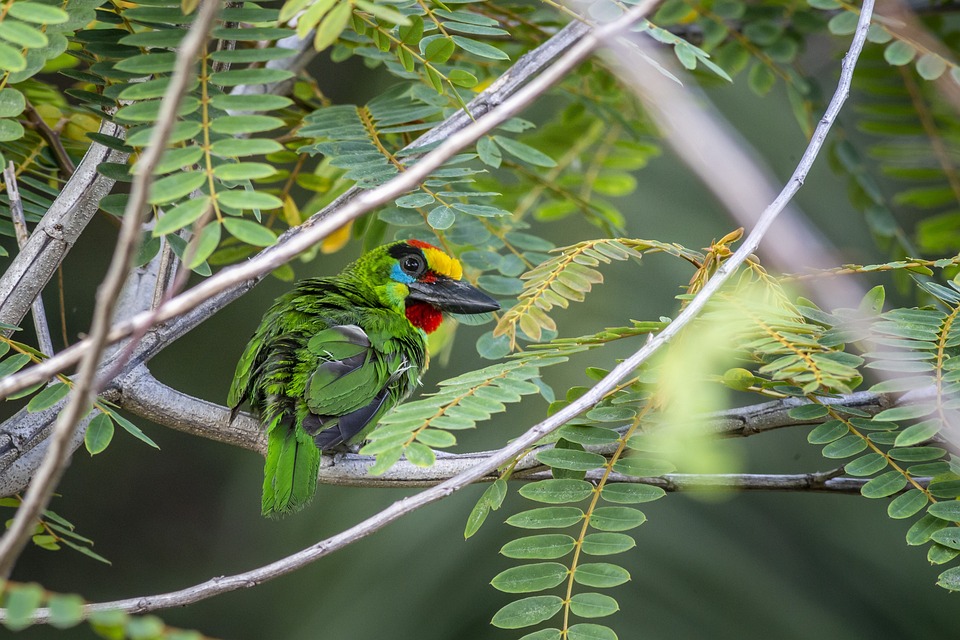Parrots are known for their vibrant personalities and remarkable ability to mimic sounds. However, excessive vocalizations can be a challenge for both parrot owners and their neighbors. If your parrot’s constant squawking is becoming a nuisance, there are several effective strategies you can employ to discourage this behavior. In this article, we will explore various methods to address excessive vocalizations in parrots, providing you with helpful tips and insights.
Understanding the Causes of Excessive Vocalizations
Before delving into solutions, it’s essential to understand the reasons behind your parrot’s excessive vocalizations. Parrots may vocalize excessively due to boredom, attention-seeking, fear, territorial behavior, or even hormonal changes during breeding seasons. Identifying the cause of your parrot’s vocalization will help you tailor your approach accordingly.
Creating a Stimulating Environment
One of the primary reasons parrots vocalize excessively is boredom. These intelligent creatures require mental and physical stimulation to stay content. By providing a stimulating environment, you can keep your parrot engaged and reduce the need for excessive vocalizations. Here are some effective strategies:
1. Rotate Toys: Introduce a variety of toys and rotate them regularly to prevent boredom. Parrots enjoy toys that encourage foraging, chewing, and problem-solving.
2. Training and Tricks: Spend quality time with your parrot engaging in training sessions and teaching them tricks. Mental stimulation through training can help divert their focus from excessive vocalizations.
3. Enrichment Activities: Incorporate activities such as puzzle toys, bird-safe mirrors, and swings into your parrot’s daily routine. These activities provide mental stimulation and can keep your parrot occupied.
Positive Reinforcement Training
Positive reinforcement training is a powerful tool to modify your parrot’s behavior, including excessive vocalizations. By rewarding desired behaviors, you can gradually discourage excessive vocalizations. Follow these steps to implement positive reinforcement training:
1. Identify Quiet Moments: Observe your parrot’s vocal patterns and identify moments when they are naturally quiet. This could be during specific times of the day or when engaged in a particular activity.
2. Reward Quiet Behavior: When your parrot is quiet during these identified moments, reward them with a treat, praise, or a favorite toy. Positive reinforcement helps reinforce the desired behavior.
3. Redirect Attention: When your parrot starts vocalizing excessively, redirect their attention to an alternative activity such as a toy or training session. This helps shift their focus away from vocalizations.
4. Consistency is Key: Consistently reward quiet behavior and redirect attention whenever excessive vocalizations occur. With time and practice, your parrot will learn that being quiet leads to positive outcomes.
Environmental Modifications
Making certain modifications to your parrot’s environment can help discourage excessive vocalizations. Here are some effective strategies:
1. Limit Visual Stimulation: Reduce your parrot’s exposure to external stimuli that may trigger excessive vocalizations, such as covering windows or using blinds. Minimizing visual distractions can help calm your parrot.
2. Provide a Safe Space: Create a designated area in your home where your parrot feels safe and secure. This space can be equipped with comforting toys, perches, and a cozy environment, helping to reduce stress-related vocalizations.
3. Maintain Consistent Daily Routine: Parrots thrive on routine. Establishing a consistent daily schedule for feeding, playtime, and rest can help minimize anxiety and excessive vocalizations.
FAQs (Frequently Asked Questions)
1. Can parrots be completely silent?
Parrots are naturally vocal creatures; however, with proper training and environmental enrichment, you can significantly reduce excessive vocalizations. It’s important to note that complete silence is unrealistic and goes against a parrot’s natural instincts.
2. What if my parrot’s excessive vocalizations continue despite my efforts?
If your parrot’s excessive vocalizations persist, it’s advisable to consult a qualified avian veterinarian or an animal behaviorist. They can assess your parrot’s behavior, provide additional guidance, and rule out any underlying health issues.
3. Are there any breeds of parrots known for being quieter?
While individual parrots may vary in their vocal tendencies, certain parrot species, such as Pionus, Caiques, and Amazons, are known to be generally quieter compared to others, like Macaws or Cockatoos. However, keep in mind that even within a species, individual parrot personalities can differ significantly.
4. Is punishment an effective method to discourage excessive vocalizations?
Punishment is not recommended when addressing excessive vocalizations in parrots. It can lead to fear, stress, and even worsen the behavior. Positive reinforcement and redirection techniques are more effective and humane ways to modify your parrot’s behavior.
Remember, addressing excessive vocalizations requires patience, consistency, and understanding. By providing a stimulating environment, employing positive reinforcement training, and making appropriate environmental modifications, you can help your parrot become a quieter and happier companion.









